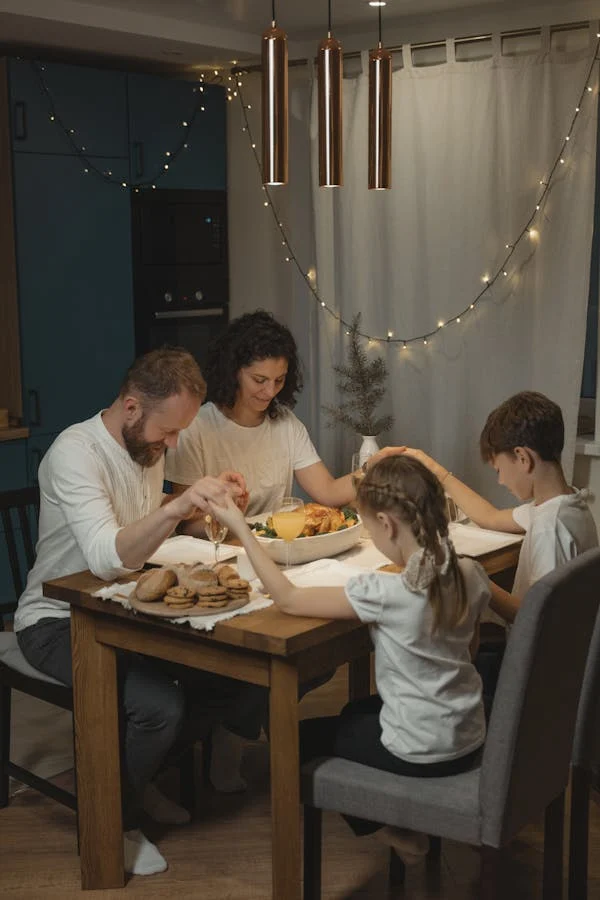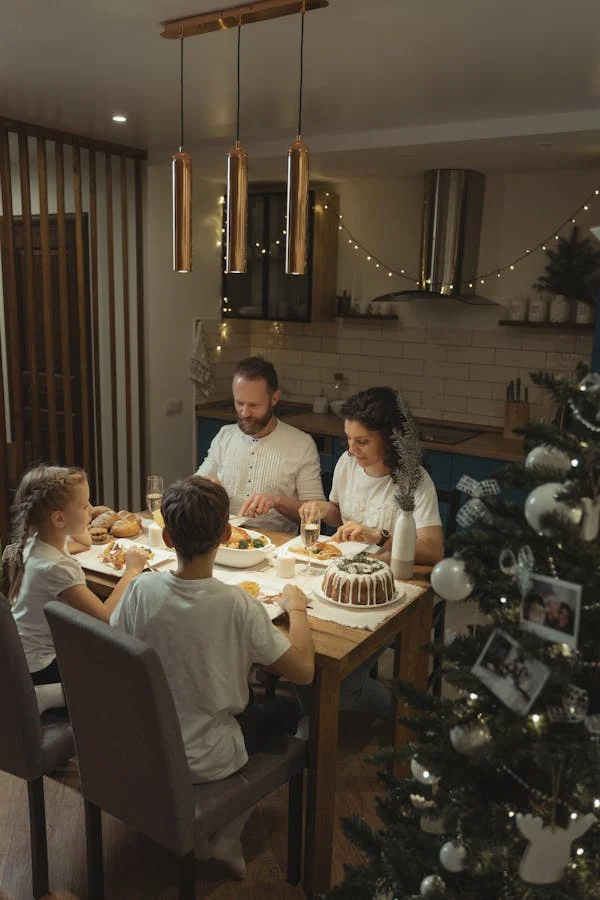|
Getting your Trinity Audio player ready...
|
Introduction
Modern parents have a dilemma: how can we raise emotionally strong, socially conscious children while negotiating the relentless demands of the digital age?
In a time when screens rule childhoods and parental guilt lives on social media feeds. Now enter Chelsea Acton, a visionary parenting guru, child psychologist, and best-selling author whose innovative approach is changing family dynamics in a complex environment.
Acton’s approach of conscious parenting redefines what it means to raise well-rounded children in the twenty-first century. Blending psychology, empathy, and actionable strategies give overwhelmed parents a lifeline.
Acton’s approach is based on emotional intelligence, a pillar of her parenting guide. Based on decades of studies in child development, she stresses teaching children to identify, communicate, and control their emotions, so building resilience that spans the digital terrain from the playground.
With 95% of teenagers having access to smartphones, Acton’s digital safety and conscious tech practices enable parents to protect without policing, so fostering trust-based conversations about online hazards and responsible use.
But as Acton defines it, conscious parenting is a whole trip—not only about children. Her support of positive discipline substitutes group problem-solving for punitive actions to foster responsibility and self-awareness.

Her focus on parental self-care, meanwhile, questions the “martyrdom” myth and motivates caregivers to give their well-being top priority so that they might teach their children to balance and emotional health.
Acton distinguishes herself by skillfully merging of timeless ideas with contemporary reality. Her approach is both pragmatic and deep, ranging from deliberate communication methods that deepen family ties to routines that balance screen time with creative play.
Chelsea Acton is a movement rather than only a manual for U.S. parents struggling with digital overload and society’s demands.
Come along for the revolution.
Find out how intentional parenting can transform everyday obstacles into chances for development, connection, and delight—proofing that, in the digital age, raising grounded, sympathetic children is not only possible but also within reach.
Chelsea Acton: Visionary in Contemporary Parenting

Renowned parenting guru, author, and speaker Chelsea Acton celebrates her revolutionary approach to conscious, emotionally intelligent digital-age child-rearing.
Acton, who has a background in family counseling, has become a leading voice in modern parenting by combining psychological research with useful techniques to assist families in navigating current difficulties.
Emphasizing emotional safety, honest communication, and positive discipline, Acton’s perspective is on connection above correction. She supports emotional intelligence and resilience by means of nurturing surroundings where children feel safe to express themselves.
Her approaches encourage parents to lead their children through sympathetic conversation and cooperative problem-solving instead of punitive actions, stressing teaching above punishment.
Mindful tech integration—which provides tools to balance screen time with offline activities—as well as critical thinking about digital consumption—keystone of her work.
Acton’s all-encompassing approach covers parental well-being and emphasizes the need of self-care to help children to develop emotional stability. She questions the idea of perfection in parenting and exhorts households to welcome adaptability and flexibility catered to particular needs and cultural settings.
Her impact ranges from books to seminars to media appearances where she simplifies difficult psychological ideas into understandable guidance.
Parents reporting stronger bonds, better communication, and less conflict have helped Acton’s techniques gain international recognition.
Her methods for managing teenage resistance or toddler outbursts, for example, stress validation and cooperative solutions, speak to many family dynamics.

Acton keeps a lesser public profile than celebrities in the entertainment industry like Chelsea Handler, a comedian sometimes confused because of name similarity.
She profoundly influences parenting conversation. She stands for a change toward compassionate, evidence-based advice, so enabling caregivers to produce self-reliant, sympathetic children in a world growing more complicated.
Acton’s materials, from her best-selling books to digital content, provide a road map for parents looking for practical insights to harmonize love, discipline, and modernity, so demonstrating that conscious parenting is both realistic and transforming.
Why Conscious Parenting Matters More Than Ever (And Why Chelsea Acton’s Approach Works)
While parents balance jobs, social media comparisons, and the ancient guilt of “Am I doing enough?” the average American child spends 7+ hours daily on screens.
Now enter conscious parenting—a way to replace burnout for balance, discipline for communication, and anarchy for connection.
Child psychologist turned parenting guru Chelsea Acton crosses timeless psychology with contemporary reality.
Her slogan is:
Parenting is about coaching not about control. Our task is to teach children how to swim in the digital ocean, not to protect them from screens.
This blog will guide you:
- How to help children develop emotional resilience using Harvard-backed techniques.
- Approved scientific methods for establishing screen limits free from meltdowns.
- Why is your secret to raising grounded children your self-care?
Top 10 advice from Chelsea for tech-savvy, stress-free, modern parenting

The Psychology of Conscious Parenting: Core Ideas of Acton
1. Emotional Intelligence
The Superpower Every Young Person Needs
Children need more empathy than they need more apps. Acton, Chelsea
Why does it function?
According to Daniel Goleman, emotional intelligence (EQ) forecasts success more successfully than IQ. Acton’s approach helps children to:
- Name their feelings (try: “Are you frustrated or disappointed?”).
- Through mindfulness techniques—such as “belly breathing”—regulate strong emotions.
- Empathize by talking about book or movie character feelings.The “Emotion Wheel” poster you make for your refrigerator will be great. Use it daily to enable children to express emotions.
2. Digital Safety Not Equivalent to Digital Fear: Raising Technologically Healthy Children
“Conversations will teach responsibility; banning TikTok will not.” Chelsea Acton
According to statistics: 53% of children under eleven own a smartphone.
The answer by Acton? The Three C Framework:
Co-watch YouTube videos to talk about the material.
Ask, “Why do you think this ad wants your attention?” to practice critical thinking.
Replace thirty minutes of scrolling with a family podcast project for creativity.
Pro Tip: Together create a family media agreement. Incorporate: • Screen-free areas—like the dinner table.
“Tech check-ins” to go over online encounters.
3. Positive Discipline—from team projects to time-outs

Punishments inspire fear. Guidance guides development. Acton, Chelsea
The science is this. Punitive discipline makes people more anxious, according to studies. Acton’s Team Approach to Solving Problems Model turns the script upside down.
Verify by saying, “I see you’re upset your sister took your toy.”
Work cooperatively: “How can we solve this so you both feel okay?”
Consider: “What worked? What might we try the next time?
Practical Illustration:
Old method: “Go to your room!” → Remorse.
Acton says, “Let’s brainstorm solutions.” → Responsibilities.
4. Self-Care for Parents: The Oxygen Mask Theory
From an empty cup, you cannot pour. Children also pick up on your running on fumes. Chelsea Acton
Burnout Crisis: Of the parents, 68% feel “constantly tired.” Acton’s correction:
The five minutes of a reboot
- Morning: sip coffee silently—not including emails!
- Afternoon: Tour the block (bonus: vitamin D!).
- Night: List three wins—e.g., “Kept cool during the snack meltdown.”
Quote to Remember: “Your secret weapon for patient parenting—self-care isn’t selfish.”
Top Advice for Modern Parents from Chelsea Acton
1. Every “no,” presents two reasonable options based on the “Two Yeses” Rule.
“You can pick yogurt or fruit but you cannot have ice cream!”
2. Swap screen time for creative tech use for passive scrolling.
“Let’s film a crazy skit instead of watching unboxing videos!”
3. Emotion charades: Play a game where children roll out emotions (angry, excited).
4. The Check on the “Why”: Ask yourself, before reacting, “Is this about safety or my ego?”
Let children create agendas for weekly family meetings (even if they center on “why broccoli exists”).
5. Digital Detox Hours: Every gadget falls into a basket after 7 PM.
Each night, write one item for which you are grateful; children can draw theirs.
6. Mistake Mantra: Embrace mistakes with “Oops! Let’s try once more.
Science indicates that 20-minute walks help to reduce stress hormones.
Laugh alongside each other. See bloopers or share early mistakes—laughing connects.
FAQs About Conscious Parenting
Q: If I’ve already applied rigorous discipline for years, can conscious parenting be effective?
A: Certainly. “It’s never too late to rebuild trust,” Chelsea Acton notes. Start small: let children help create new rules and apologize for past hostile reactions. Not perfection but rather progress counts.
Q: How do I manage screen time without continual conflict?
Acton counsels, “Frame limits as empowerment, not punishment.” Make use of cooperative tools including a family media agreement. For instance, “Let’s agree on one hour of gaming and you pick which game.”
Q: Suppose my child objects to discussing emotions.
A: Play helps one to normalize emotions. Play games with an emotional theme or watch movies. Children open up when they feel safe, not under interrogation, says Acton.
Q: Does conscious parenting fit busy families or single parents?
A: True! Pay close attention to “micro-connections”. Ten minutes every day of focused attention. Acton reminds us “It’s quality, not quantity, that builds bonds.”
Q: How should I handle comments from others on my parenting approach?
A: “Your family’s peace is the only review that matters,” Acton notes. Share gently (“This podcast helped us!”) but give your values top priority.
Success Story: From Screens to Sunshine
Sarah knew something had to change when her nine-year-old son Jake started hiding his iPad under his pillow and snapping at her over breakfast.
Until Jake’s teacher called regarding his declining grades and angry outbursts, screens had become her “babysitter”—as a single mom working two jobs. Sarah says she felt as though she had let him down.
Desperate, Sarah happened onto the “Rebuilding Connection in a Disconnected World” podcast episode of Chelsea Acton.
One line really got her: “Kids act out when they feel invisible, not because they’re ‘bad.'” Rather than angry about the iPad the following morning, Sarah sat next to Jake and asked, “What’s your favorite game? Could you impart knowledge to me?
For the first time in many months, Jake grinned.
Saturday they worked together creating a Minecraft world, and Sarah listened as Jake admitted he felt “lonely” working late. That weekend, they jointly developed a Family Media Agreement:
- Sundays free from screens—hikes instead!
- Before bed, 15-minute “Check-In” conversations
Still, advancement was not linear. Sarah used Acton’s “emotion coaching” script when Jake threw his tablet after losing a game: “You’re frustrated because you worked hard. I get it. Let us breathe and try once more tomorrow.
Shifts slowly started to show up. Jake started overnight leaving his iPad in the living room. He invited Sarah to help with the garden club at his university. He told Mom one evening, “Mom, I like this version of you better.”
“Chelsea’s tools didn’t just fix Jake—they healed us,” Sarah says with a cracked voice.
Real-Life Reviews
1. “Two Yeses Rule” by Acton saved our mornings! Every outfit used to be fought by my seven-year-old. She is currently choosing between two shirts. Fewer tears, more high fives!
Lila is a Texas working mother.
2.”I laughed at ‘parental self-care’ until I tried the 5-minute reboot. Coffee alone in silence? revolutionary game. My kids see me calm and ask questions.
Mark, Dad of Ohio’s three-year twins
3.”Teaching, I see children drowning in screens. Following Acton’s “3C Framework” with parents, classroom focus rose fifty percent. magic!
Ms. Rivera, the fourth grade teacher.
4.My teen called me ‘cringe’ for joining TikTok, but working on videos together broke the ice.” We are laughing about it now. You’re welcome, Chelsea!
Priya, Mom of a 13-year-old.
5.With my five-year-old strong-willed, positive discipline seemed unattainable. But after applying “collaborative problem-solving,” nighttime is no longer a war.
– Carlos, Dad from Stay-at- Home

Final Thought
Digital age parenting is about being present rather than about being perfect, the tactics of Chelsea Acton are lifetimes tested by thousands of families drowning in screen time guilt and disconnect; they are not just theories.
Her tools remind us that connection is always within reach, whether that means rebuilding trust with a resistant teen or finding delight in little, screen-free events.
Actually, though, reading about change is insufficient. The first step has to be yours.
You start your path right now. Not with grand gestures but with a deep breath, a curious heart, and the bravery to say: “Let’s figure this out together.”














